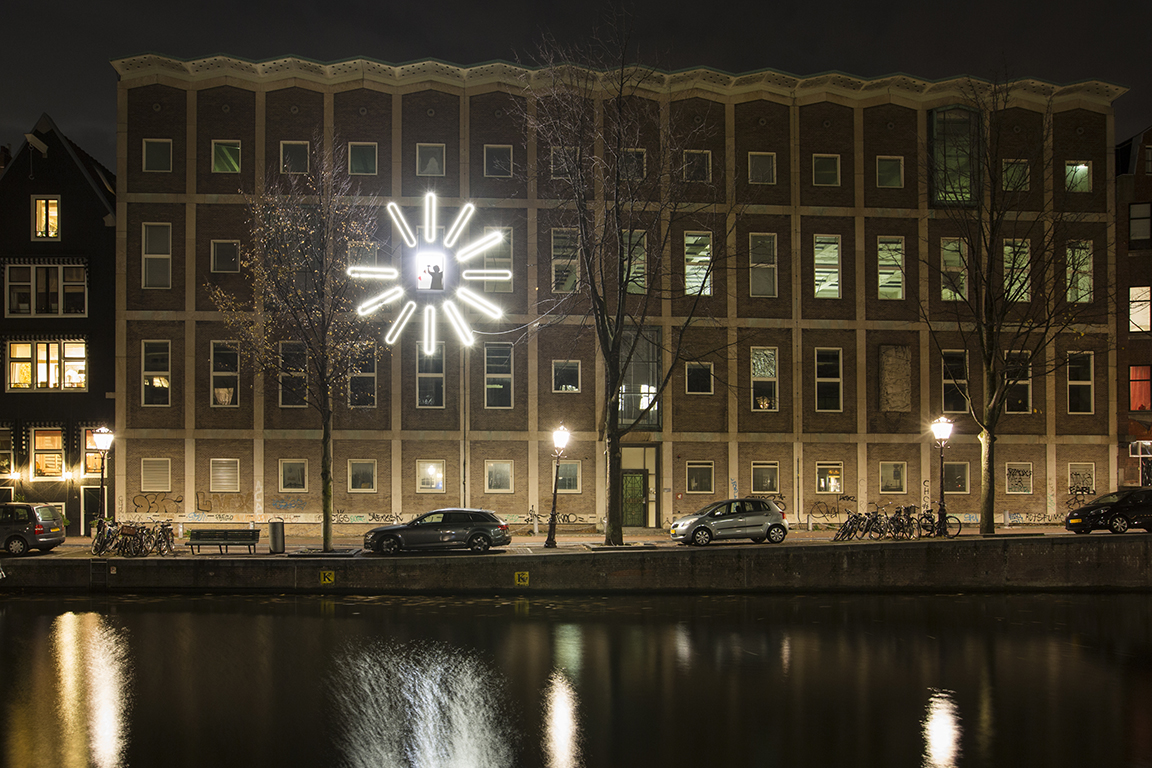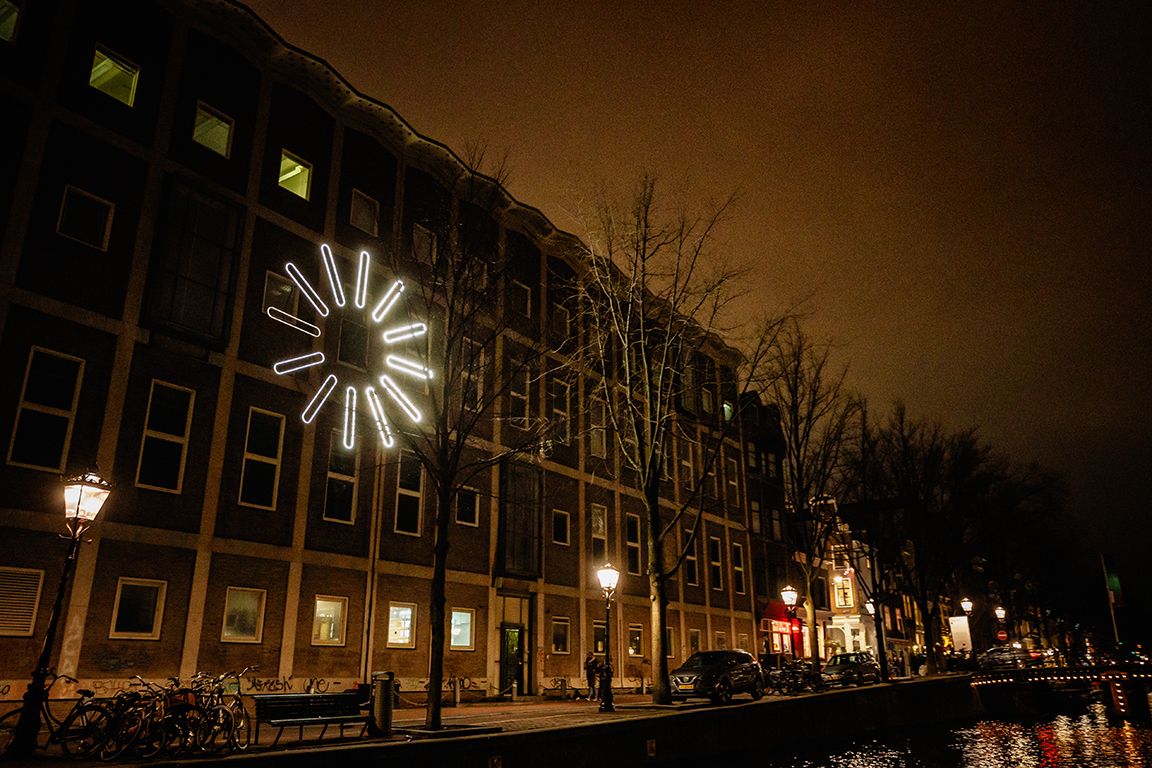Waiting...
We can all recognise the rotating wheel that appears on our computer and phone screens when we have to wait for something to download, buffer, update or restart.
The waiting symbol – which is actually made up of single lines in a circle that light up one by one (and is originally based on a rotating memory disc) – reassures us. Don’t click away, don’t close the window. Wait a minute and you will be rewarded. You may not see it but we’re working hard behind the scenes.
In Frank Foole’s installation Waiting… the symbol is taken out of your screen and enlarged as a monumental artwork. This gives the familiar waiting symbol a very different, even strange meaning. It sits like a modern ‘hieroglyph’ on the facade – will anyone know what it means in the future? The waiting symbol, along with the Bluetooth, Wi-Fi or USB signs, are all part of a new visual language that was developed in the 1980s alongside computers, operating systems and the Internet. Every day, we are bombarded with messages (including texts, images and sounds) and we don’t make the effort to decipher them if we don’t understand them immediately. Symbols are a great solution; in our hyper-visual world, they are simple and take less time to understand.
And so, we have become accustomed to the fact that the spinning wheel will, at some point, after waiting for either a short or a somewhat longer amount of time, stop turning. But what happens when Foole’s wheel stops turning?

